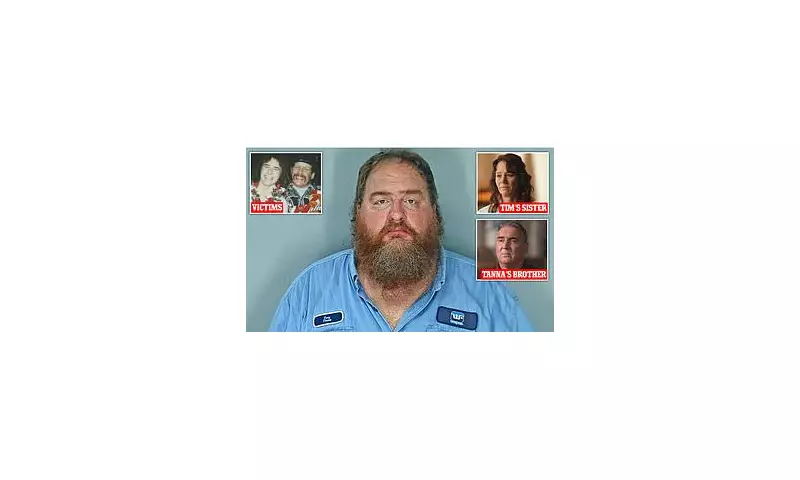
Three Decades of Waiting Ends in Courtroom Shock
A Wisconsin man accused of brutally murdering a young couple in 1992 to avenge his father's snowmobile death has been acquitted, leaving victims' families reeling from what they describe as a devastating miscarriage of justice.
Tony Haase, 54, who faced two counts of first-degree intentional homicide for the deaths of Tanna Togstad, 23, and Timothy 'Tim' Mumbrue, 35, walked free in August after a Waupaca County jury delivered a not guilty verdict. The decision came despite DNA evidence and a confession that had seemingly pointed to his involvement in the gruesome crime that shook the rural community of Weyauwega.
The Night That Shattered a Community
On March 21, 1992, the young couple were last seen alive around 11:30 pm at a local bar before returning to Togstad's farmhouse in Royalton. According to prosecutors, Haase entered the home and launched a violent attack, stabbing Mumbrue multiple times before sexually assaulting and stabbing Togstad. The assailant also killed Togstad's dog during the horrific incident.
The case remained cold for decades until investigators received a crucial break when the daughter of one of the original suspects came forward, identifying Haase as a potential perpetrator. The breakthrough came after Wisconsin authorities collected a DNA sample from Haase following a routine traffic stop on July 6, 2022.
A Wisconsin State Crime Lab analyst confirmed on July 18, 2022 that Haase's DNA matched evidence recovered from Togstad's body, leading to his arrest three days later at his workplace, the Waupaca Foundry.
The Confession and Motive
During questioning, Haase initially denied involvement but eventually admitted to investigators that he "was afraid he was involved" in the murders. He described being in a "drunken stupor" after bar hopping on March 20, 1992, when he began thinking about the snowmobile crash that killed his father fifteen years earlier.
The tragedy occurred on December 31, 1977, when Haase's father died in a snowmobile accident involving two other drivers, one of whom was Tanna Togstad's father. Haase maintained it was "a horrible accident" but acknowledged having "snippets" of memory involving the stabbings.
In his confession, Haase recalled getting into a "scuffle" with Mumbrue, wrestling while standing up and moving his arm in a stabbing motion toward Mumbrue's chest. He described Mumbrue falling to the floor near the foot of the bed, then punching Togstad in the face when she yelled before stabbing her in the chest when she began to stir.
The Trial and Controversial Acquittal
During the August trial at Waupaca County Courthouse, prosecutors argued that DNA evidence conclusively placed Haase at the crime scene. "We are here today, and we know exactly who did this crime. Those swabs knew. The science knew and was waiting for technology to catch up," the prosecution stated.
However, the defence successfully challenged the evidence, arguing that crime scene collection, fingerprints, DNA, blood evidence, and handprints found on one of the doors had been mishandled and were unreliable. The defence also claimed Haase's confession was coerced and attempted to pin the murders on Haase's uncle, Jim Tiel.
Haase's wife, Tracy Haase, who attended every day of her husband's trial, told Dateline's Keith Morrison: "In my heart, I know he did not do this. There is no possible way he could have ever done something like that."
Families Continue Their Fight for Justice
The acquittal has left the victims' families devastated and determined to continue their pursuit of justice through alternative means. Tim's older sister Tina Spierings described her brother as "her protector" and was crushed by the verdict.
Togstad's brother, Rick Togstad, has filed a civil wrongful death suit against Haase, stating: "It isn't about financial gain. I don't want his house. I don't want his retirement. Acknowledgement is what I want."
The case featured in NBC Dateline's episode 'Raising the Dead', which aired interviews with family members and friends of both victims and Haase's family, along with retired investigators who worked on the case.
Despite the trial outcome, the double homicide case officially remains unsolved, leaving a permanent scar on the tight-knit Wisconsin community and the families who continue to seek closure three decades after the tragic events.





